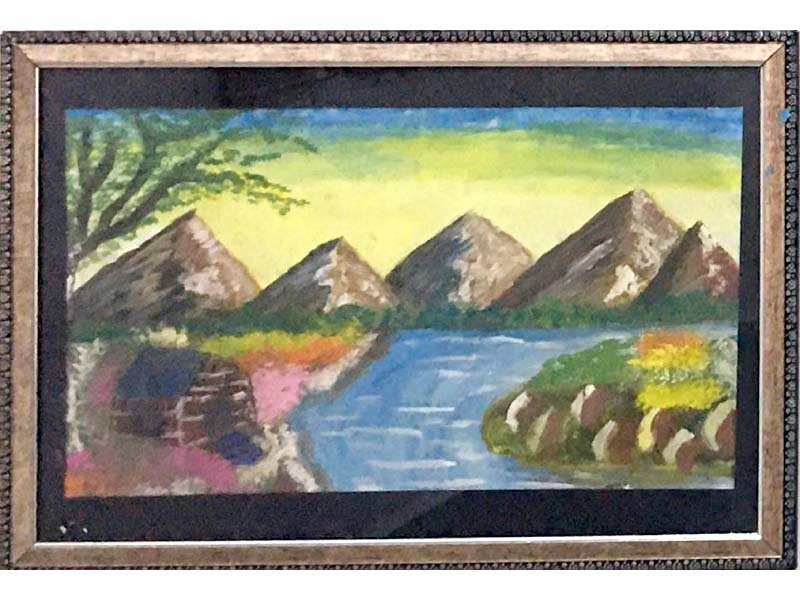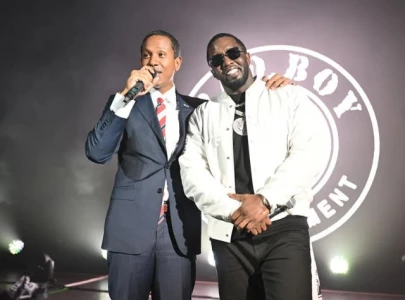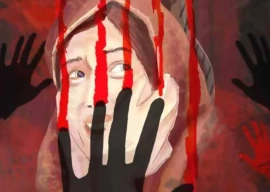
After having made his mark among his peers for top-notch, artistic capabilities, he was over the moon to see one of his paintings exhibited at Alliance Francaise de Karachi on Friday. And with him were dozens of other differently abled students from the Ida Rieu Welfare Assocation (IRWA), some visually impaired and some hearing impaired, presenting their work at the Art Gallery 2020.
Iqra, only 12 and the first-position holder in her class, was another student showcasing her work at the exhibition. With a penchant for nature, her drawings of trees and sunsets were lauded by visitors from all walks of life.
Speaking with The Express Tribune, IRWA vice president Nadira Panjwani hailed the event, calling for more venues to give differently abled persons a chance to showcase their talent.
“This is an opportunity for us to show off the skills of our students, and with more such platforms to exhibit their work, it will be a massive source of encouragement for them, possibly even leading to good earning prospects,” she said.
At a stall displaying handmade stationery, 25-year-old Naseer Ahmed, who is hearing impaired, garnered attention with his imaginative book-bindings and designs.
“Naseer enjoys creative designing and is very talented at it,” elaborated his teacher, Rubina Waseem, who has been at Ida Rieu for the past 17 years and has no intention of going anywhere. “The satisfaction one gets from teaching these children is unprecedented and indescribable, and their work makes us even happier,” she added.
“They [the students] are blessed with talent and creativity in abundance. It amazes me to see how professional their work is,” said IRWA principal Muzna Masood.
Speaking to The Express Tribune, she explained that there were around 700 differently abled students at their campus, whom they taught using the best facilities available. “For visually impaired students, we teach them using braille, while for children who are partially or completely deaf, we use sign language.”
Discussing some of the challenges faced by the organisation, Masood observed that it was difficult training teachers and volunteers in using sign language. “Not many new teachers are really familiar with it, and have to learn how to interpret and understand the children,” she explained.
Meanwhile, discussing the future prospects for differently abled children in Pakistan, Ida Rieu president Vice Admiral (retd) Khalid M Mir maintained that there was a lot of work being done in this regard, as there was a growing realisation that the children deserved more than what they were getting.
Emphasising the provision of vocational training to enhance their skills, he said that IRWA had begun offering computer courses and imparting professional training to the students. However, he added, they needed more government assistance in this task.
“Vocational training is hands-on training and it is expensive,” he asserted, adding that this would boost the chances of employment for differently abled children and stressing the importance of enabling them to get better jobs through such qualifications.



1731916090-0/sabrina-(3)1731916090-0-165x106.webp)













COMMENTS
Comments are moderated and generally will be posted if they are on-topic and not abusive.
For more information, please see our Comments FAQ